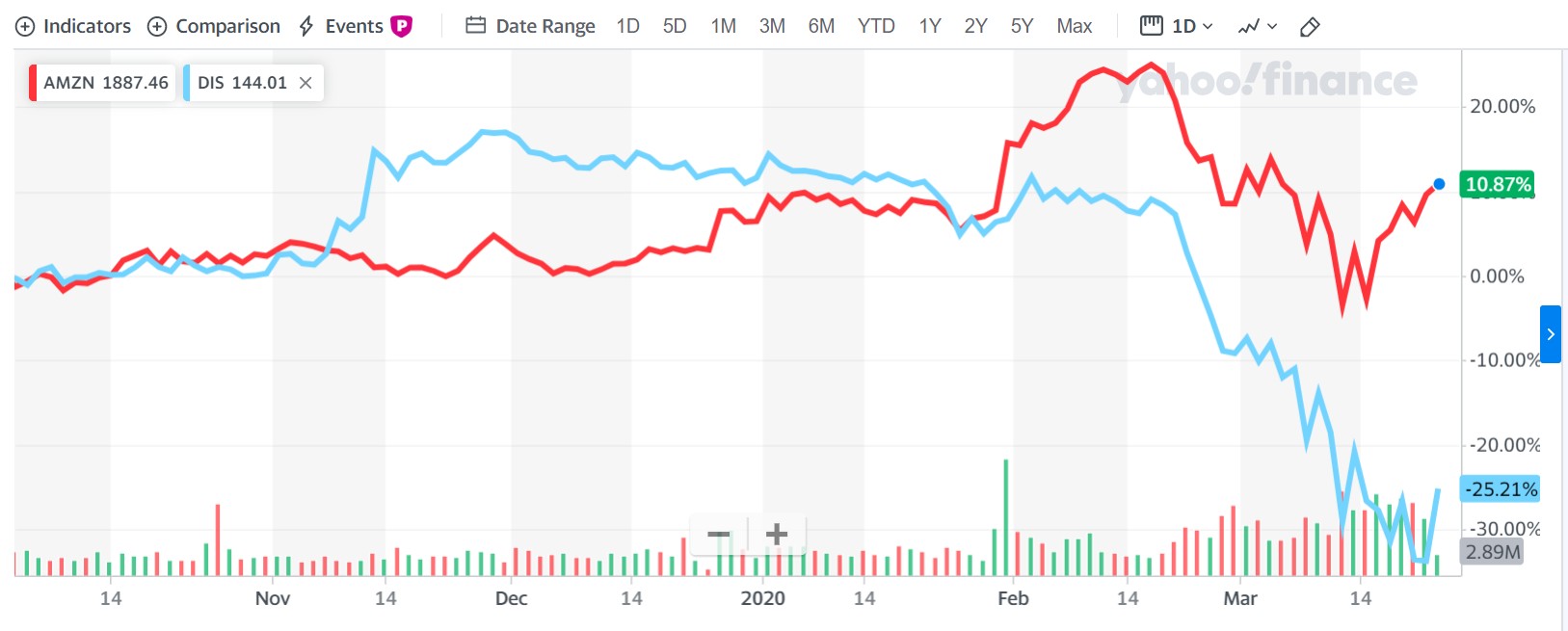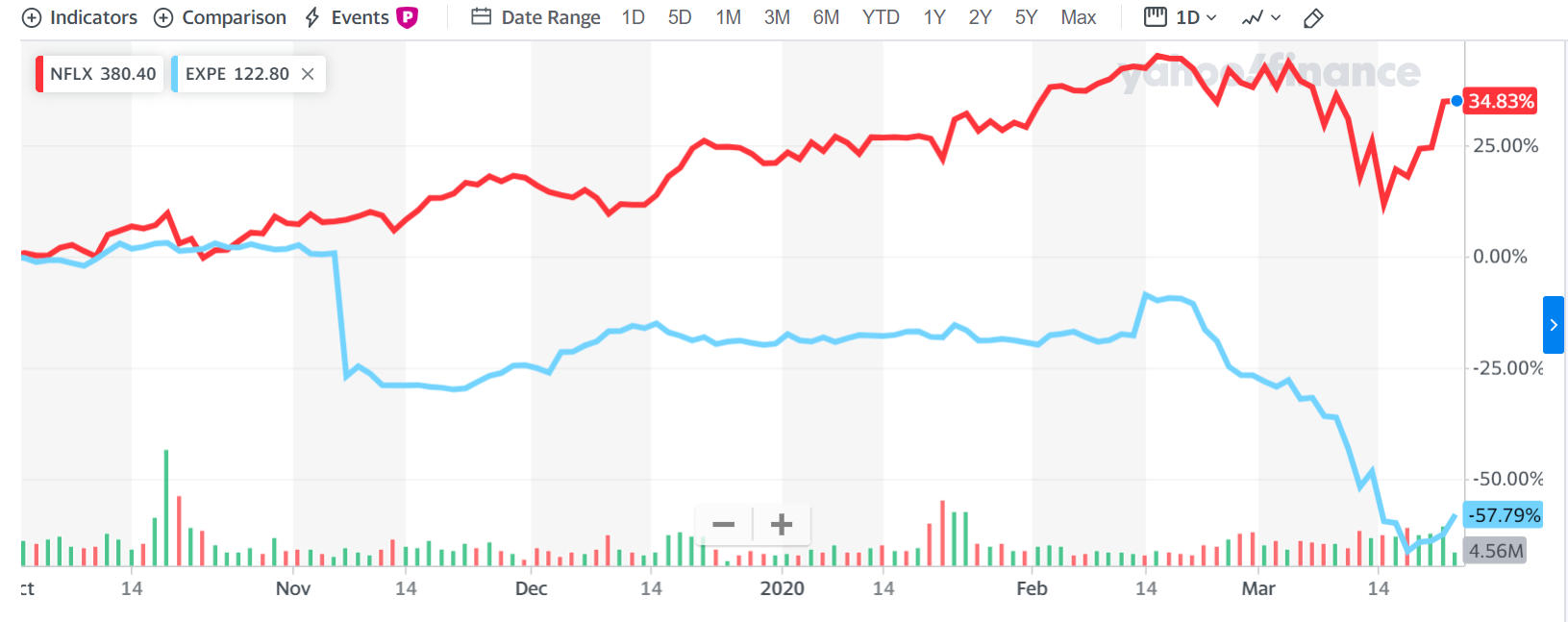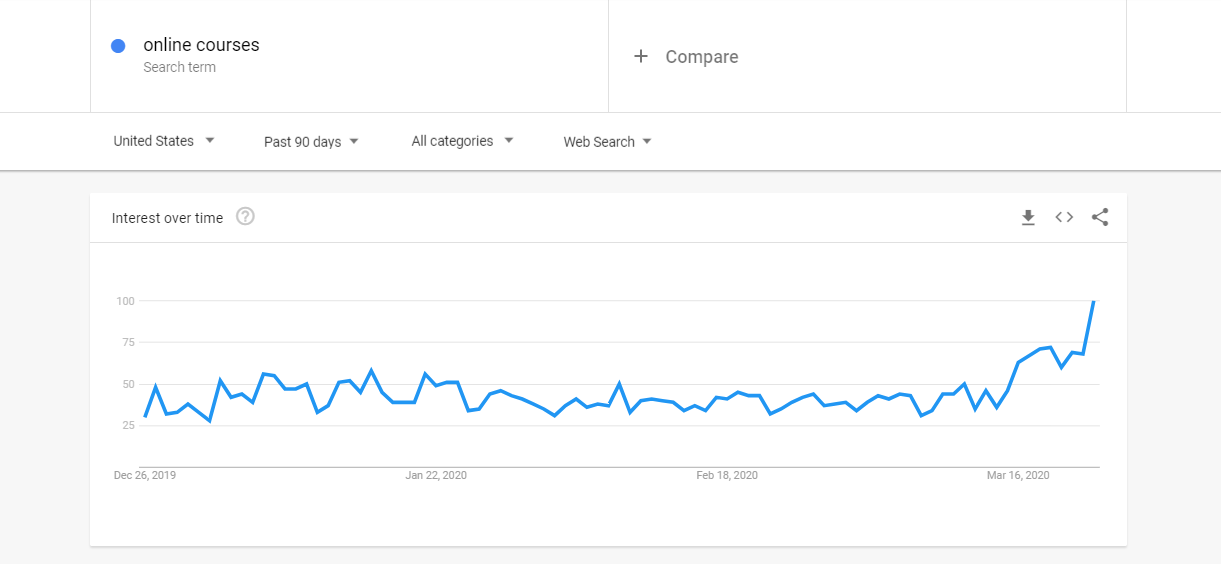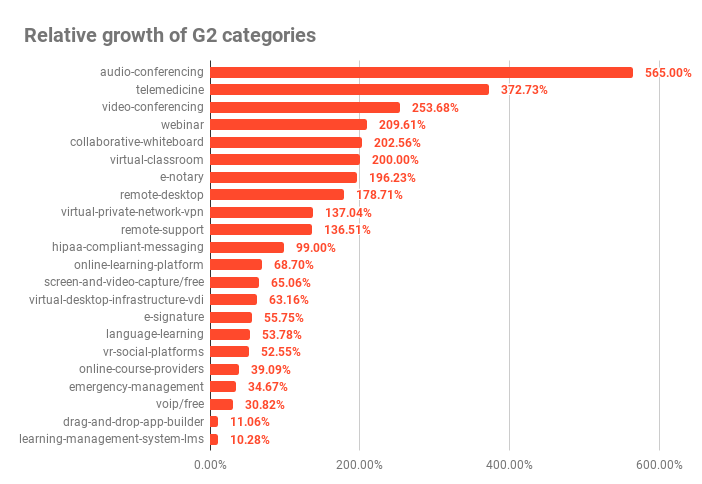Start Exploring Keyword Ideas
Use Serpstat to find the best keywords for your website
How Lockdown And Coronavirus Affect SEO And Internet Marketing: What To Do And How To Prepare


Since the beginning of February, Serpstat has been monitoring the situation around the pandemic daily to take appropriate steps to help protect the team and our product. We decided to share our experience regarding this issue and to get the opinion of experts: what businesses can expect from changes in the market and how to work in quarantine to minimize its consequences.
Is coronavirus a black swan event for the global economy?
Today, many companies have sent their workers to work from home because of the epidemic. However, not everyone takes this seriously. If you go out into the street, it will be difficult to understand that something is wrong: there is heavy traffic on the road, a lot of cars, people walk in crowds, some cafes work. For an ordinary person, everything is as always.
Business owners see the situation quite differently. The first blows of the epidemic have already shaken the global economy. It is enough to glance at the change in the value of shares of large companies. For example, Amazon - the largest eCommerce vs. Disney - the most extensive global conglomerate with a significant offline component. Over the past 6 months: Amazon has 10% growth versus Disney's 25% decline.


What should a business do in a crisis
The main task is to act fast and quickly adapt to the situation. While other businesses are failing, think about what has changed and how you can beat everyone on this.
The changes that we see now:

Important tips
If cash gap is approaching, take action. For example, try to delay payment due dates to contractors, landlords, and suppliers. Such actions can save your business.
However, it is important to understand that in crisis conditions, it is worthless saving on marketing and sales activities. On the contrary, it is necessary to direct maximum effort to these channels to increase their effectiveness. What for? Because with the return of market stability to be in the lead, not among outsiders, and grow steadily.
- category one: the most important, vital for the company;
- category two: expenses of secondary importance;
- category three: expenses to maintain comfort, additional.
And the most disappointing, but sometimes necessary, is to conduct the same analysis of jobs in the company. No business owner wants to say goodbye to his staff, but sometimes it is required. If the future of the business is at stake, it's better to say goodbye than to fail together. Therefore, just in case, you need to have a reduction plan.
Also, don't forget about competitor analysis in search results, monitor their activity, because they also don't sleep. It is also important to get the latest data on the top of search results:
In a crisis, marketing should be aggressive, and sales department should be as precise as possible. Building a sales funnel is a must-have for your marketers. Also, for any business (in any condition), active sales managers and properly organized processes are essential.
You see positions falling - well, this is an excellent opportunity to analyze all the processes, and optimize them. The crisis knocks out inefficient and inflexible players from the market, so you need to mobilize, make plans, follow them, adjust them, and move on.
Of course, the experience of colleagues in the market will be handy. And we have already managed to collect all the necessary information for you. So read on ;)
Get a personal demonstration for a quick start
Why and how to implement remote work for your employees?
It took Serpstat and the entire Netpeak Group two days to shift 600 people to full remote work. And we managed to do this precisely thanks to the accuracy that accompanies all the processes in the company.
How the crisis will affect SEO and Marketing: experts opinion
I think the quarantine that certain countries are now facing has shown these businesses just how much easier it is for remote-friendly companies to adapt to the needs of their employees and communities while staying competitive and productive in their industry. When this quarantine ends, I expect hundreds of businesses worldwide to adopt remote work - and the cloud-based platforms to go with it - as permanent infrastructure for their staff.
Search behavior is changing rapidly this year, but it won't affect every business the same way. While some sites may see organic traffic decrease or increase, others may see no change at all - either because their customers' online habits haven't changed since the pandemic, or because an increase to one content topic offset the decrease to another. In either case, the metric that's most important right now is revenue. Businesses need to consider the possibility that marketing performance may not translate to sales performance the way it does under normal economic conditions.
I don't know that there's a perfect response for marketers to have in the current state of things. But in my professional opinion, no crisis should be treated as a business opportunity - even if they think they see one. This is a stressful time for people all over the world, and marketers need to take care to figure out what role their brand will play in the lives of customers who are suffering the most.
From a tactical perspective, I would recommend checking Google Trends on a daily basis and understanding how your customers are impacted. That can help towards protecting the downside, and may even highlight some opportunities which you hadn't previously considered.
A couple of weeks forward, I expect the pandemic to drive the world into a severe depression. As a result, SEO will become more popular in demand because it's a low-cost channel. Companies will trim the fat and focus on what works. The consumer will look for durability, value, and negotiate harder.
It's important to resegment your customer list into groups based on how affected by the downturn they are. You also need to reforecast demand and revenue projections (in a recession, a deficit of 20-40% over 12 months is common). Double down on the things that bring revenue, don't make quick and dramatic moves and accept you don't know (for sure) what's coming.
At G2, we successfully tried a work from home week with my SEO and Content team last year. We'll continue to adjust based on what we learned from that and do the best job possible.
Some time ago, Kevin Indig of G2 shared this chart showing what types of SaaS businesses have demonstrated solid growth in recent weeks:

Currently, no one wants to invest in launching new projects, and that's totally understandable. The current uncertainty brings far too many questions and next to no answers. As a result, everyone is cautious when it comes to scaling and growing. Plus, companies that used paid channels are reducing their paid budgets to avoid wasting their money on advertising when consumers are not paying attention. However, this situation makes SEO quite a popular channel, and some businesses, finally, have money to invest in SEO (often by reallocating funds that had been designated for PPC).
Also, if you have something valuable to share, it's the right time to launch your own online course while everyone sits at home and has the time to learn something new. Given the current situation, such courses should be quite affordable; otherwise, no one will take advantage of them while their income is uncertain.
I think the only measure that makes sense is to safeguard the amount of cash that you have in your bank account. The main goal is to ensure that you can afford to pay your employees, the monthly subscription to tools you need in your work, and those key independent contractors who have become part of the fabric of your business. You can't pause your team until the situation clears up, because they need to eat and pay rent, too. Instead, put them to work advancing your business, even if you have to make sacrifices to do it. It totally makes sense to protect your customers during difficult times so they will be there for you in the recovery. We follow quite a similar strategy with our long-term clients.
If we're talking about SEO metrics, then one important measure is to try to understand how demand has changed over the last month and to determine what direction it has taken. Start with basics things like keyword research to learn more about market trends. Then think about how you could connect the growing demand to solutions that you can provide even while your company is working remotely from home.
I'm forced to work from home even though I hate it. (Yes, I know that I'm in the minority). One good thing about our team is that we are mostly a virtual company already and have a good number of employees working remotely from other countries, so our internal processes are not affected much. In fact, the only one who struggles is me, as I can't concentrate at home, and I'm much less productive.
Instead of live-action ads, cartoons or animations just might make a comeback
Marketers will look for marketing resources like TED talks, courses, and eBooks to help them come up with new strategies or ideas for their campaigns, or find out more about different spheres of marketing.
According to The Kingdom, open email rates dropped over the past week, and digital ads have become more expensive as a form of sales conversion (this is because Google Adwords and Facebook CPC prices aren't going down at the same rate as site traffic).
According to Neil Patel, organic traffic will go down in some industries. And lastly, according to Wirtualne Media, several companies are partaking in CSR actions because they want to promote awareness, but also help during a crisis. What's more, marketers might mistake "making the best of a bad situation" as "exploiting the situation".
CSR funding won't be able to go on forever. Small-to-medium enterprises won't be able to do the same kind of public good that a company like Amazon or Microsoft could. Instead, how the brands treat their employees and clients will indicate whether they value safety and well-being more than their own profits.
We'll have to keep an eye on the situation since it's still evolving, but that seems to be the current state of affairs.

Dealing with frozen or scared clients:
- Don't stick to your contract.
- Be for them now so they'll be there for you later.
- Keep track of organic traffic and wait for an incline.
- Use google trends to detect recovery/increase in demand related to your client's line of business.
- Suggest focusing on future rise in demand or new areas or topics previously unexplored.
Cost saving:
- Trim the fat but never reach the bone.
- Keep your talent employees.
- Negotiate with Landlords.
- Open a ticket with different suppliers/tools and ask for a temporary discount – most will be happy to oblige.
- Move manual routines and tasks to automation.
Where to invest your time as an SEO:
- Work on your infrastructure: PBNs and other digital assets.
- Adjust and optimize products and queries that are on the rise ('printer' -> 'home printer').
- Reschedule big future changes or upgrades on client/own websites to NOW (less traffic at risk, more attention to SEO needs.
- Links are cheaper now!
On the other hand, trainers, entrepreneurs, creators, teachers and coaches of every kind are being forced to find a way to continue serving their customers. That is by going online doing either live classes or pre-recorded lessons.
Everyone who is already well-positioned on relative keywords is seeing a huge increase, but trends are changing very quickly. New trends are coming up and results on trends are changing quickly. People are trying to capitalize on this and earn some short-term traffic boost.
Writing timely content is more important than ever, but it has to work for your industry. Writing for COVID-19 just to get traffic is only going to bring value to media companies if your company does not offer a solution to any of the issues arising, which is remote working, video software, online learning, entertainment and delivery services.
On marketing, I always believe that the best growth hack is just plain old good marketing. The companies that adapt quickly and think strategically with the future in mind will get out of this stronger, and see a continuous growth even after this situation.
We are going to see a lot of opportunistic marketing, being on brand, on message and thinking evergreen will protect companies (and marketers) from staining their brands with a sad occasion while taking advantage of this.
PR is important, an on brand internal and external message is expected and needs to be carefully crafted to be a hopeful message. Try to offer help with your companies & products as much as possible, this is the best way to create loyalty and get positive results from your marketing approach at this period.
Content (both blog, emails and social) and especially PPC strategies needs reviewing in a weekly or daily frequency, we are seeing trends arising every day and a new country getting into lockdown. You need to monitor your immediate channels to adapt and respond to changes.
Our company already had 2/3 of its workforce working remotely and the rest working in flexible hours and semi-remote. This is not something new for us, but, it still forced us to re-do some of our processes.
Our marketing and content team daily and weekly mini-meetings are keeping the team and morale high. We were already using a variety of communication and remote work software like Asana, Slack, Zoom, Google Drive and a lot of Spreadsheets for work, so nothing has changed in this department, we are only using them more now.
Speed up your search marketing growth with Serpstat!
Keyword and backlink opportunities, competitors' online strategy, daily rankings and SEO-related issues.
A pack of tools for reducing your time on SEO tasks.
Recommended posts
Cases, life hacks, researches, and useful articles
Don’t you have time to follow the news? No worries! Our editor will choose articles that will definitely help you with your work. Join our cozy community :)
By clicking the button, you agree to our privacy policy.






